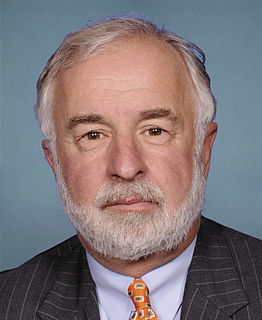A Quote by Tim Bishop
In addition to joblessness, of course, by the working of supply and demand, when you have a larger number of people unemployed, wages do not rise at the normal level, so that we had last year a drop in real wages.
Related Quotes
The study titled 'Impact of Immigration on Wages, by Education Level, 1994-2007' found that increased immigration had an effect of lowering wages for earlier immigrants by an average of 4.6 percent. Running counter to popular perception is the finding that for native-born Americans, wages actually increased by 0.6 percent.
I have had the view that cutting wages is not the path to prosperity, and one of the great myths propagated about my attitude to industrial relations is that I believe in lower wages. I've never believed in lower wages. Never. Never believed in lower wages, I've never believed in lower wages as an economic instrument.
If a market exists for low-paid work, then we should think about how we can make this type of work more attractive by providing government assistance. Of course, the wage-earner must be able to live off of his wages. We will not allow poverty wages or dumping wages. But the wage earner can receive a combined wage that includes both his actual wages and a government subsidy.
Requiring the payment of higher wages will lead to a loss of some jobs and a raising of prices which drives companies to search for automation to reduce costs. On the other hand, those receiving higher wages will spend more (the marginal propensity to consume is close to 1 for low income earners) and this will increase demand for additional goods and services. Henry Ford had the clearest vision of why companies can actually benefit by paying higher wages.
You know, when I was in college, there was a big debate: Do unions raise wages? Well, with regard to industrial unions, there were arguments back and forth -- international competition. It is now clear, I think, that whether or not you think unions raised wages 50 years ago, the absence of unions and their weakness that is inflicted by anti-union public policy depresses wages. The fact is that people who are not represented, in the service industries in particular, are the victims of policies which depress their wages.
Democrats in Washington predicted that tax cuts would not create jobs, would not increase wages, and would cause the federal deficit to explode. Well, the facts are in. The tax cuts have led to a strong economy. Real wages were on the rise, and deficit has been cut in half three years ahead of schedule.
































